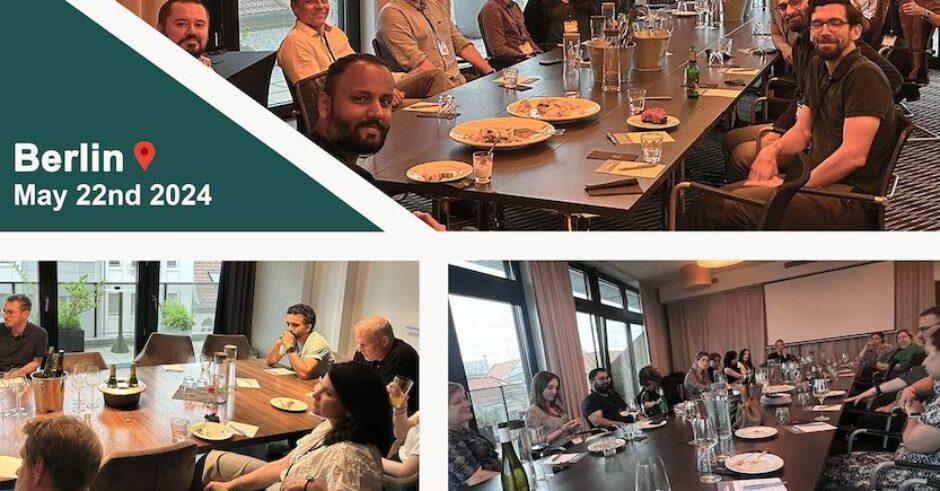Organisations and teams have never been through more of a transitional period than the last 3-4 years. Teams are now more streamlined with management being asked to do more with less and to maximise the potential of employees within their teams.
We brought together some of the brightest minds across Technology, HR and Go-To-Market for an event in Berlin, which due to the interest across our network resulted in us hosting 3 roundtable sessions across the evening.
Hosted by Becky Finnegan (Associate Director at Annapurna), Josh Emptage (Director at Annapurna) and Tom Walsh (Manager at Annapurna), over 40 senior professionals came together to discuss the impact that streamlined teams were having on their organisations.
The conversation covered a wide range of topics, bringing about some key takeaways:
Focus on Sustainable Employee Performance
One of the roundtable discussions had a specific focus on the role of the HR/People function, which brought a different twist to the conversation.
Defining an ROI in an HR/People function is notoriously difficult and without effective data processes and an analytical mindset, can sometimes not even be on the radar.
Understanding what productivity and efficiency mean in your business is vital as the first step and the group discussed the shift from just measuring raw output to a more holistic view of productivity. How to do more with less is a challenge in itself but this can release benefits whereby through removing layers of employees/roles, it removes inefficiencies and cuts out fluff. For example, one of the groups mentioned the essence of product analytics not being a role in itself but being something that is part of someone’s role.
This includes factors like employee well-being, clear career paths, and fostering a psychologically safe environment. It’s about creating conditions where motivated employees can consistently deliver high-quality work.
Transparency and Shared Ownership
Effective communication and open information sharing were highlighted as crucial for lean teams, especially during the lay-off process of becoming leaner. The groups discussed how some of their organisations had to make the difficult decision to do layoffs in their organisations and where this had occurred, the importance of doing it right with transparency and consistent communication was imperative.
Being honest about the performance of the business can have huge benefits when it comes to employee buy-in. If you are having to change some of the perks that employees get, rather than just doing it, try to be honest and explain why costs are being cut. Businesses have suffered because they are not wanting to deliver bad news. This is often worse than being transparent.
While some companies shield employees from financial details, others find success by including them in board discussions or financial reports. This transparency builds trust, empowers teams, and fosters a sense of camaraderie.
Data-Driven Decision-Making & Skill-Based Hiring
The importance of high-quality data to measure and improve predictability was discussed at length.
There was a discussion about the growth of the Berlin tech startup scene where the money has now seemingly run out. The current market conditions have resulted in a bloat of talent across the market. These lessons have been learned the hard way but now we must go about applying this knowledge for the next time. Right now, there needs to be a focus on sustainable hiring and understanding the strategy from the beginning of any process. Not just hiring because there is cash to use.
When the focus is not on mass hiring there is an opportunity to focus on other projects such as implementing HRIS better, upskilling + reskilling, internal mobility, interview training etc.
Building methods for hiring based on skills and personality tests, rather than traditional CVs, was discussed as a means to facilitate building teams with the right competencies to achieve specific goals and increase overall productivity.
The discussion touched on many aspects of the employee lifecycle but we must always bring it back to organisational performance. As leaders, we must accept that sometimes creative solutions happen when there are constraints in place. Accepting that innovation can be incremental and not just a lighthouse moment can help to instil a culture of optimisation. If we can set the right mentality across our teams and reap the benefits of technology (such as automation), operating with leaner teams can be a huge benefit.

